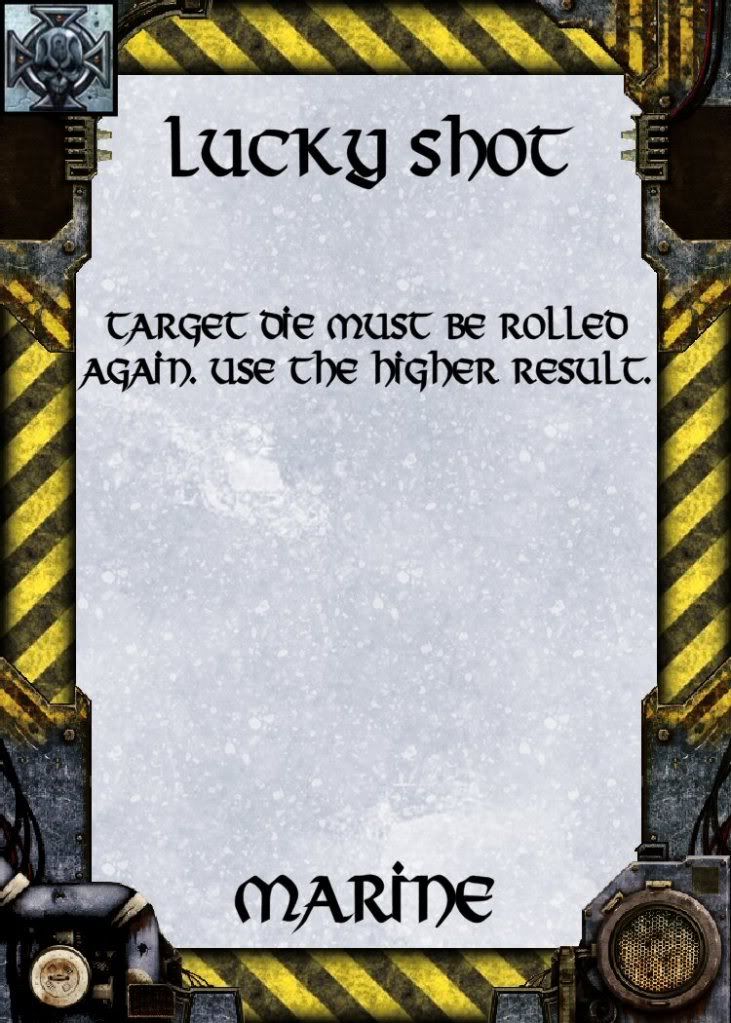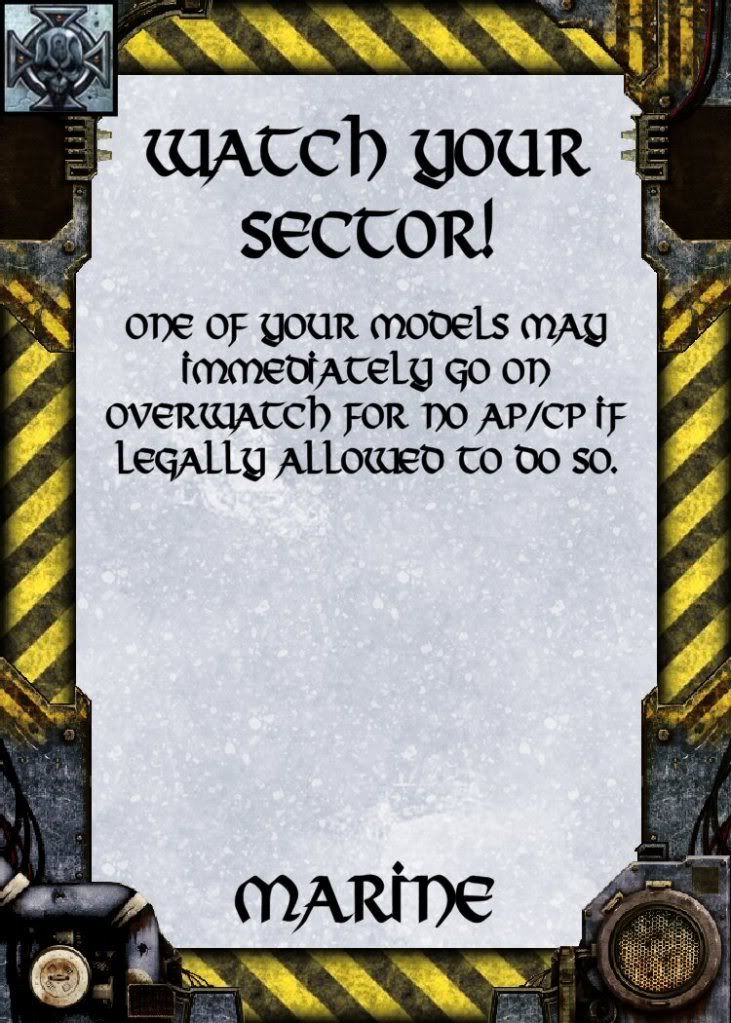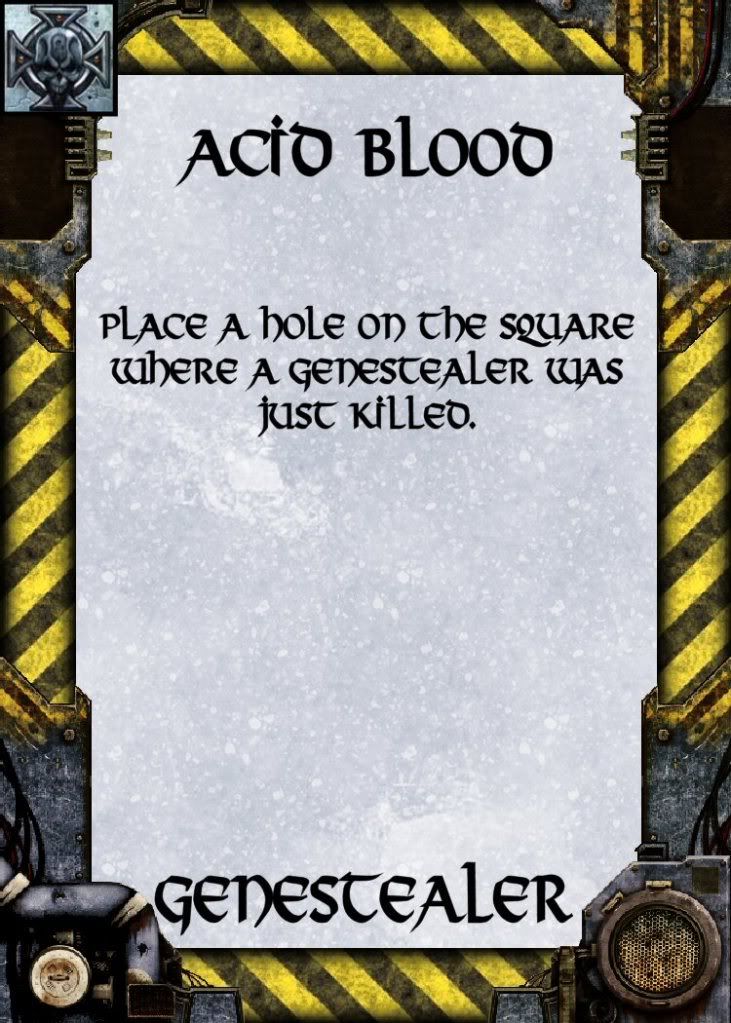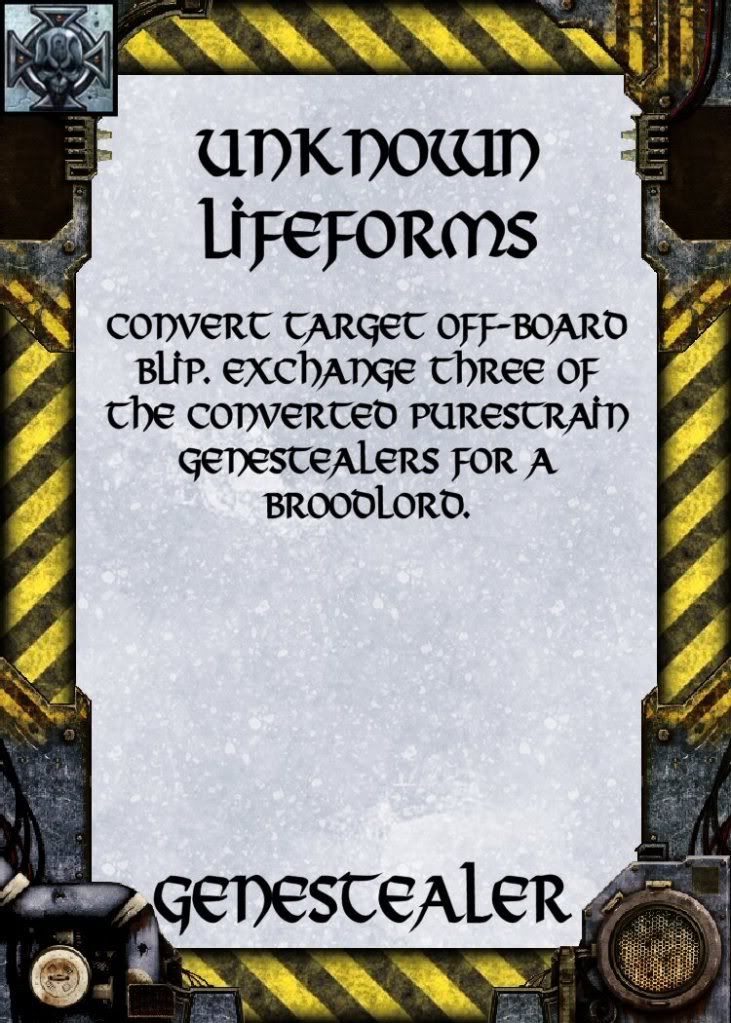Many games over the years have utilized some form of
Action/Event/Fog of War deck to simulate the vagaries of chance on the battlefield.
These have appeared in Space Hulk style games as far back as Space Crusade, up
to the more modern Claustrophobia and Incursion board games. A number of
table-top wargames have also begun to include similar mechanics. While not
something everybody enjoys, many players do take enjoyment in the extra level
of randomness and uncertainty provided. As such, one of the first elements I
wanted to build into Space Hulk: XT was an optional action card deck.
Easier said than done.
There is one notable issue with most games that use
action cards that made translation to Space Hulk rather more difficult than I
first had imagined. Most games that include action cards of any sort are in
fact driven by their inclusion, not
simply enhanced. Although Incursion draws very, very heavily from Space Hulk
for its core rules, anyone who has played more than a few games will be able to
tell you that the back-and-forth interplay between cards is an enormous part of
gameplay. This is not in and of itself a bad thing: however, I wanted to layer
an additional level on to Space Hulk, not add in a new element that completely
controlled the outcome of the game.
Thus, I was faced with a conundrum. The only real
reference material available to me from similar games sported a power curve much
more dramatic than what I was seeking. So, I began with simple conversions from
similar games, and very quickly pared down to elements that were less drastic.
As an example, cards with effects like “Target model
is immediately shot by an auto-defense turret, 1d6 +0 damage” went right out.
In mission #1, Suicide Mission, playing this card gives the Genestealer player
one chance in six to win the mission outright.
No matter how well the Marine player maneuvers, no matter how lucky he is up to
that point, one simple card could very well end the game. This goes against the
feel that Space Hulk’s well-crafted gameplay evokes: tight, tense,
claustrophobic, and always balancing on a knife’s edge of victory and defeat.
But removing many of the cards to preserve game balance brought up another
question: how much should a single, lucky card draw affect the game?
My answer is this: A lucky card draw should in general affect a
situation no more than a lucky Command Point draw, or a lucky die roll, or luck
blip draw.
With this in mind, the cards being used (that had
already undergone many tweaks and revisions by this point) were scrutinized
again. This is done in a number of different ways. For example, the fairly
straightforward “Lucky Shot” card allows for a chance to roll a die again and
use the higher of the two results. This card is available to both players, and
is no more powerful than a lucky roll in the first place.
In a similar fashion, the Marine-based order card “Watch
Your Sector!” allows a model to go on overwatch if legally allowed to do so.
While this may be surprising if used and timed correctly, it is in and of
itself not all that different from drawing a few extra CP.
Many of the cards, however, do diverge somewhat from
this fairly simple extrapolation. The Genestealer card “Acid Blood” places a hole
in the ground where a ‘stealer was just killed. Again, not game breaking (and
in some situations, not even all that relevant), but placed in the right area
in the right missions it can certainly make a Marine player sweat.
Finally, some of the cards included allow for some
unique circumstances that shake up a mission, but in such a way as to remain
balanced. “Unknown Lifeforms” allows you to swap three Purestrain Genestealers
for a Broodlord, but requires that you do so as a blip enters the board. This
allows for a large, powerful siege-breaker of a model, but gives the Marine
player time to prep for its arrival. (Note this is not the third edition Broodlord,
however. The shooting and melee rules for that one are silly, and will be
discussed more at a later date. Think 1st edition Patriarch or so.)
Action cards are not something that a player can
build a game-winning strategy around just by drawing, but they are something to
help you on your way if you’re lucky and clever enough.
Coming on Friday: combat and dealing damage in Space Hulk: XT.
-M




I'm glad to see that you're not carelessly throwing new mechanics into the game. I've never played Space Hulk, but I'd very much like to. Reading these articles is almost cathartic for me.
ReplyDelete